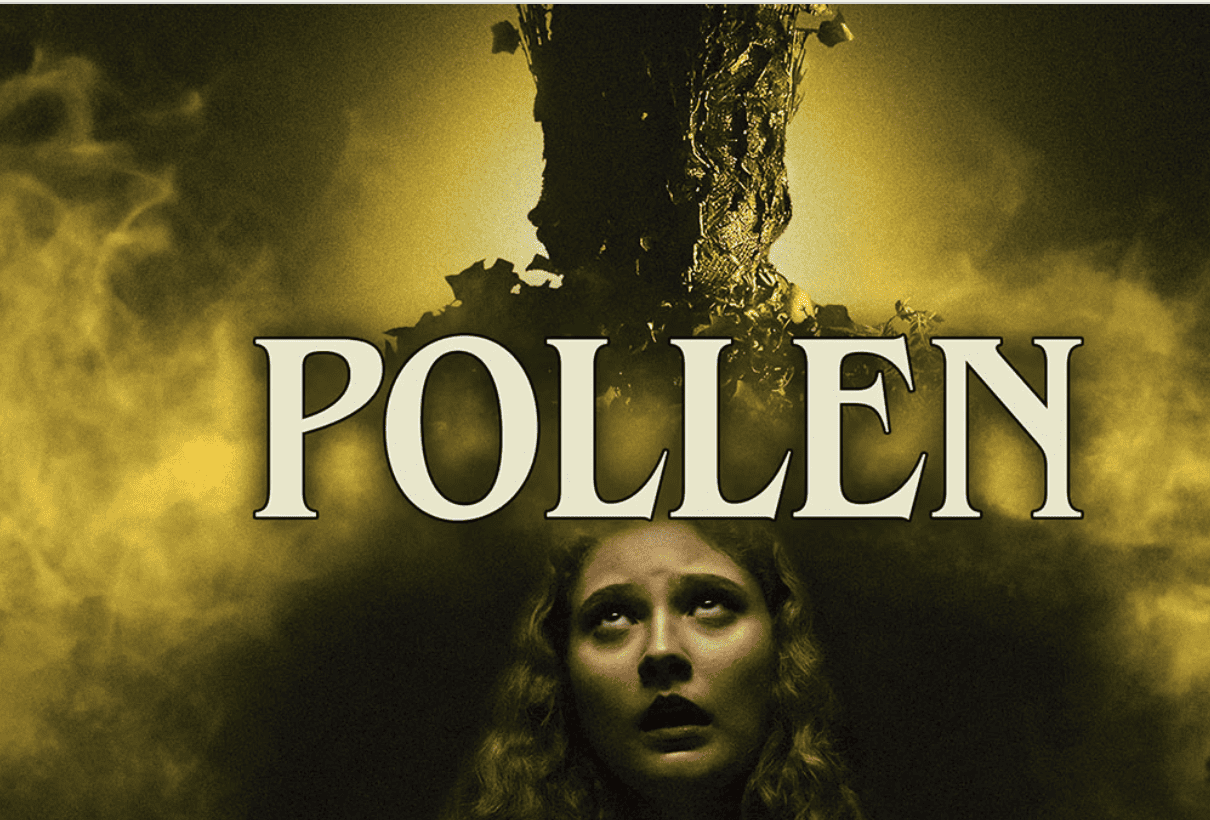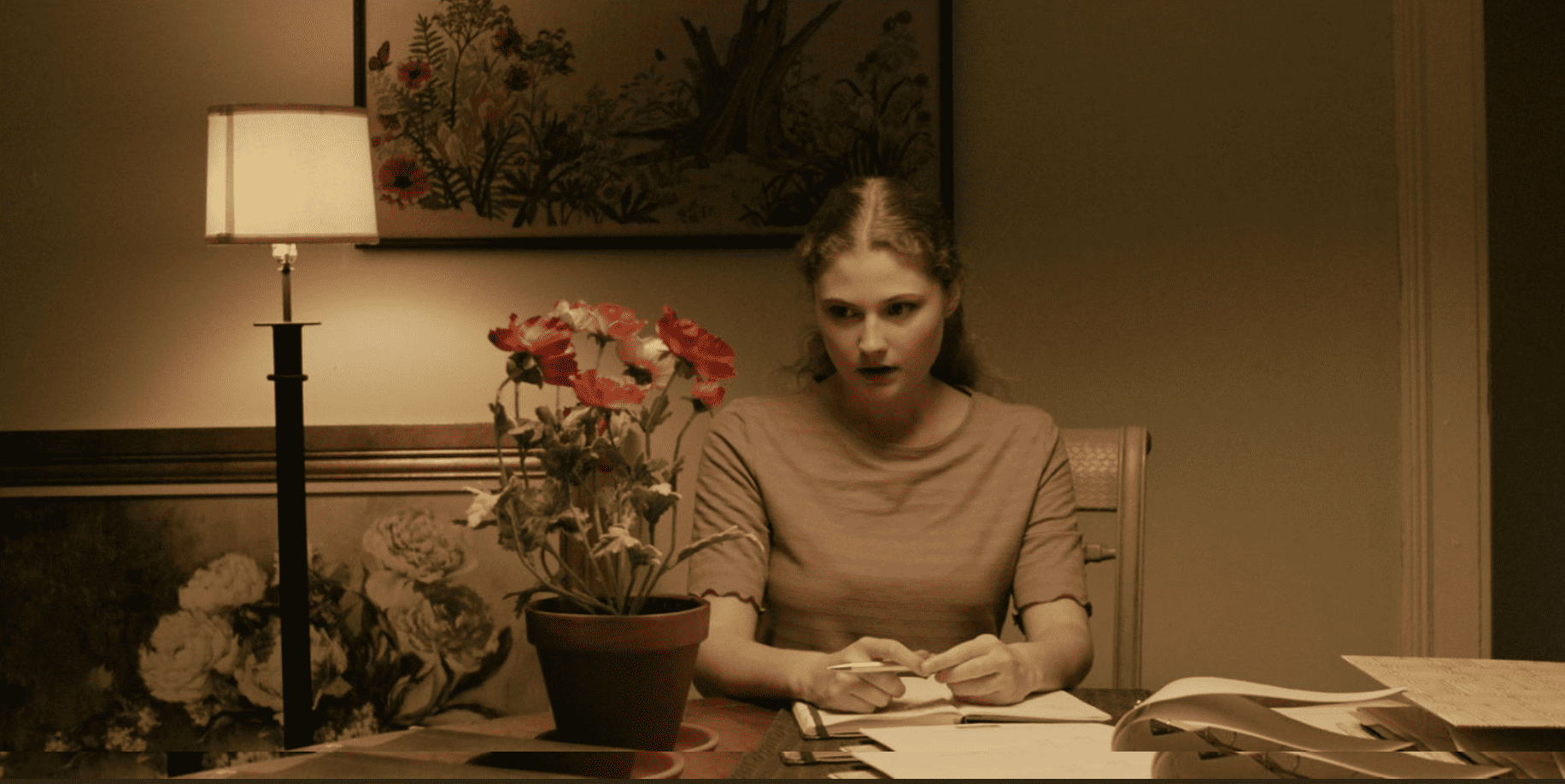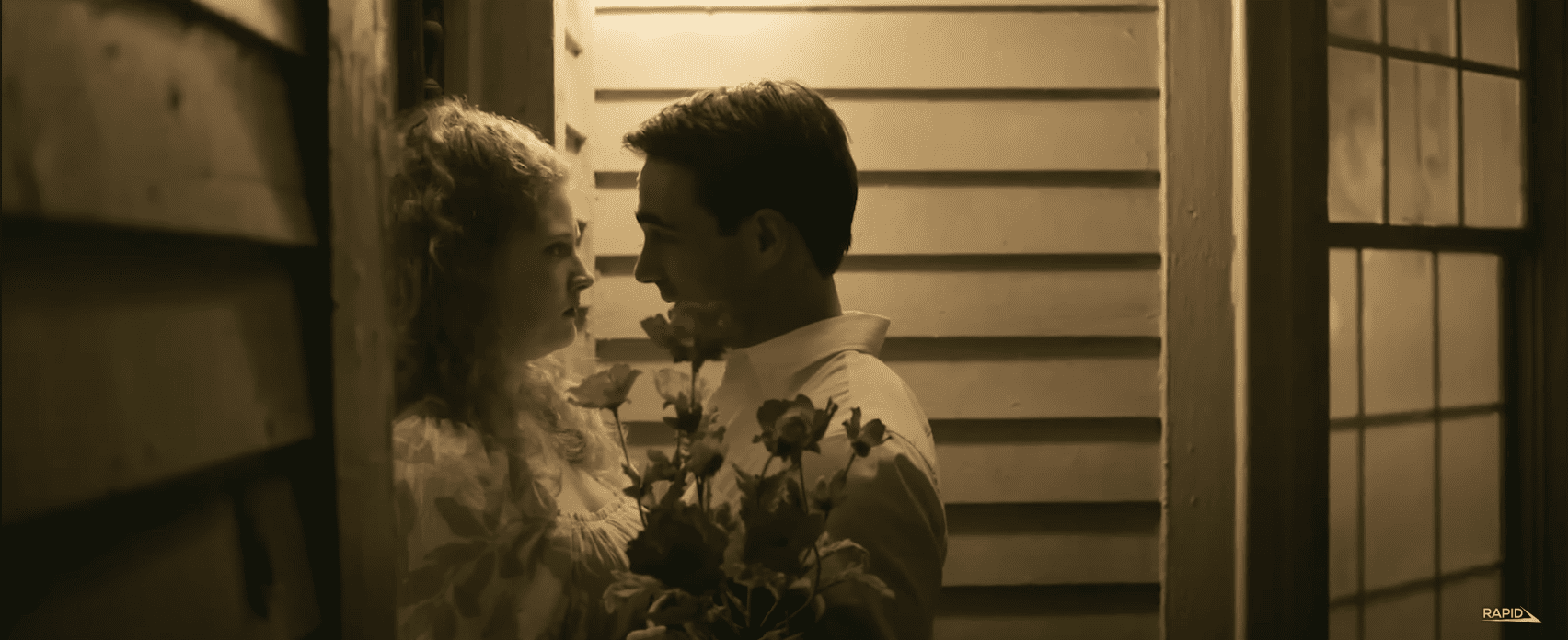Pollen (2023) – Movie Review and Summary (with Spoilers)
D.W. Medoff’s “Pollen” is a horror film that doesn’t frighten you with scares, but chills you with its authentic portrait of trauma.

Spoiler Alert: This summary and review contains spoilers.
Additionally, some images and text may include affiliate links, meaning we may earn a commission or receive products if you make a purchase.
| Director(s) | D.W. Medoff |
| Screenplay By | D.W. Medoff |
| Based On | N/A |
| Date Released (Video On Demand) | June 6th, 2023 |
| Genre(s) | Horror |
| Duration | 1 hr, 26 mins |
| Content Rating | Unrated |
| Noted Cast | |
| Hera | Ava Rose Kinard |
| Zach | Tyler Buckingham |
| Vicky | Bennet Welch |
| Demi | Ashley Ames |
This content contains pertinent spoilers. Also, images and text in this post may contain affiliate links which, if a purchase is made from those sites, we may earn money or products from the company.
Film Summary
“Pollen” is a small-budget horror film with an ambitious story and a committed cast ready to turn the beauty of a flower into an object of terror. While the frights and morbidity might be more silly than scary, the costume design, editing, and acting make Pollen an intriguing exploration of trauma and a promising start to D.W. Medoff’s feature filmmaking.
“Pollen” follows Hera, a shy and bright-eyed woman (played by Ava Rose Kinard) who hasn’t had the means to travel or invest in a romantic partner, yet she desperately seeks connection. While she’s friendly with her coworkers, one colleague, Zach (Tyler Buckingham), shows interest in her and wishes to take her out on a date. Hera immediately seizes the opportunity.

Zach immediately manipulates Hera and pushes her to have sex with him. He gifts her a potted flower and pretends to be kind, yet he makes Hera feel guilty when she rejects his advances. Zach forces his way into Hera’s house, and they have sex. The next morning, Hera is alone and confused about what happened the night before. She becomes fixated by the flower he gave her and notices the flower’s pollen rubs off on her fingers. Hera starts to confide in the flower and treats it as a friend.
Hera brings the flower to work, and when she wishes to talk to Zach about what happened, he immediately scolds her for being unprofessional at work. Hera feels increasingly isolated at her new job; her coworker Vicky is callous to her crying in the bathroom, and her bosses pressure her to succeed.
The more Hera tries to open up to someone (like her sister, her female boss, etc.), the more they belittle her feelings and tell her she cannot show emotion. As Hera’s anxieties and stress increase, she’s terrorized by a tall tree monster and starts transforming into a flower herself. Hera’s reality slowly slips away until she becomes more violent, erratic, and one with her flower.

Things To Note
“Pollen” is Unrated but includes
- Dialogue: Small instances of strong profanity
- Violence: One scene of sexual assault and a few other instances of quick violence
- Sexual Content: A few intentionally uncomfortable scenes of sexual harassment and assault without graphically showing the assault.
- Miscellaneous: N/A
Character Descriptions
Please Note: This character guide is not an exhaustive list of every cast member, and character descriptions may contain what can be considered spoilers.
Hera
Hera is a budding achiever at her workplace. As she tries to adapt to her workplace culture, she’s taken advantage of and mocked by nearly everyone there. After she’s assaulted by a coworker, she finds solace and connection in the flower he gave her.
Zach
As a top earner in the office, Zach may initially seem easygoing and charming, but he uses his power to prey on women. He’s a textbook manipulator from a privileged background and has never fully faced the consequences of his actions.
Vicky
Hera’s coworker has lived a more privileged life than Hera could imagine. Vicky travels to Italy every year, possibly snorts cocaine at work, and only talks to Hera for her amusement. When Vicky starts to flirt with Zach, tensions between Hera and Vicky rise.
Demi
Demi is Hera’s sister and lives a hectic and task-filled life. She’s a nurse and a single mother and feels responsible for her younger sister’s well-being. Demi may not always have time to listen to Hera, but Demi clearly cares about her.
Review
Our Rating: Mixed (Divisive)

Highlights
Grounded Performances Make Hera’s Situation Feel Personal and Its Own Horror Tale
The horror in “Pollen” doesn’t necessarily come from Hera’s transformation into a plant but from how realistic and common Hera’s situation is. Ava Rose Kinard and Tyler Buckingham especially demonstrate the horrific and tragic phases of sexual assault. Buckingham’s terrifyingly familiar portrait of a man with all the power as Kinard’s Hera tries her best to cope and find agency in the aftermath will resonate with many.
Creative and Engaging Metaphor for Ignored Trauma
As Hera is haunted by a tree monster and begins to wither under her own trauma, “Pollen” serves as a symbol for anyone whose trauma is diminished and prevents their potential growth as a human. Yet D.W. Medoff stresses that Hera is willing to talk about what happened, yet no one is willing to listen. Hera’s haunting doesn’t just come from the trauma but also from the widely accepted and ignored response to it.

On The Fence
A Bonkers Third Act That Could Use More Tension
The film’s horror builds nicely until the third act, where Hera breaks into her workplace twice, forces her flower to eat grass, takes a bath in soil, gets possibly assaulted by the tree monster, contemplates suicide, and kills her assaulter within twenty minutes. “Pollen” throws everything at the wall to see what sticks, but the events pass too quickly to fully digest or resonate with viewers. While “Pollen” makes the most of its low budget and its tree monster is menacingly well-crafted, the film could have used an extra 5 minutes to see the consequences of Hera’s actions.
Violence as a Means for Closure
By the end of “Pollen,” Hera stabs Zach to death and stomps his head in. While the ending is fitting for a horror movie (and ultimately, that’s what Pollen is), it’s a tricky one to lead to Hera’s closure with her assault. While the film doesn’t explicitly state that Hera is fully healed after killing her assaulter, she seems to have a renewed life. I understand the fantasy of vengeance and how violence is sometimes necessary, but after providing a realistic portrait of sexual violence’s aftermath, the end rings false.
Images used for editorial and commentary purposes. All rights remain with their respective copyright holders.


